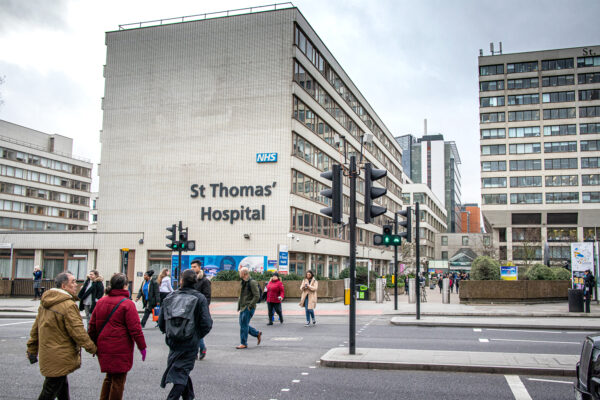
Ambulance workers and nurses are planning to strike in England and Wales on Monday in what could become the largest walkout in the National Health Service’s history.
Emergency care will still be provided, but planned operations and outpatient services are being postponed.
Unions says nurses and paramedics are overworked and underpaid. They are demanding a 5 percent increase in wages over inflation, which is 14 percent. The governments of England and Wales have given an average of 4.75 percent with a guaranteed minimum income of £1,400 per month.
Health workers deserve a raise, but this won’t solve the NHS’s many other problems. At some point Britain has to accept the NHS is the problem.
Shortages of everything
British health spending has increased 12 percent since the pandemic. 12 percent more doctors and 8 percent more nurses have been hired.
Shortages remain. There are almost 47,000 nursing vacancies in England alone. 34,000 nurses quit in the last year. Nearly half were younger than 35.
The reasons have been well understood for years: high stress, high chance of burnout, low pay, lack of say in procedures and working hours, and a sense of being taken for granted by administrators. COVID-19 and high inflation were the final straws for many.
Meeting salary demands could come at the expense of investments in buildings and equipment, which are outdated. Nineteenth-century hospitals may be pretty, but they are expensive to bring up to twenty-first-century standards. Britain has fewer CT and fewer MRI scanners per capita than France, Germany and the United States.
More money, worse outcomes
Britain spends a larger share of its national income on health care than most countries in Europe: 12 percent compared to 11 percent in the EU.
British health-care spending is also high in per-capita terms: $5,390. Only fourteen countries spend more, including France, the Netherlands and the United States.
Yet with that money, Britain achieves far worse outcomes.
It has 281 physicians for every 100,000 residents. The EU average is 351. Britain also has relatively fewer nurses and fewer hospital beds than other rich countries.
Ambulances take 90 minutes on average to respond to a suspected heart attack or stroke. The target is 18 minutes.
Emergency rooms are overcrowded, forcing ambulances to queue outside, adding more delays. Patients are waiting ten times longer for emergency care than they did a decade ago. Cancer patients are waiting fourteen times longer for an operation. In England, there are 7.2 million patients on a waiting list. That is one in eight residents!
The president of the Royal College of Emergency Medicine believes the delays cause 300 to 500 excess deaths each week. American conservatives who claim socialized medicine kills may have a point.
The NHS is the problem
The problem isn’t lack of money, it’s that the money isn’t spent well.
Health care in the UK is provided through a centralized bureaucracy that does not reward cost-cutting, but saps initiative; does not treat patients with compassion and professionalism, but treats them as numbers.
That’s not my opinion. It’s the NHS ombudsman’s — from twelve years ago.
His warnings were ignored by a Conservative government that balked at systemic reform for fear of being accused of “privatizing” the NHS by Labour.
But that’s exactly what they should do.
Follow the Dutch
The Dutch abolished their version of the NHS in the early 2000s, which also had shortages and waiting lists. The Netherlands moved to a mixed public-private system in which hospitals are publicly owned but independently operated and insurance is private but subsidized. The Dutch government regulates prices of insurance and pharmaceuticals. Costs are controlled by negotiations between health-care providers and insurance companies.
The system isn’t perfect. Waiting lists have returned since COVID. The Netherlands still has a nursing shortage, for many of the same reasons as the UK. Ambulance waiting times in rural areas are too high.
But patients aren’t dying for lack of care. Patient satisfaction in the Netherlands is consistently higher than in Britain.
There is no reason the British can’t have the same — except that they cling to a system that so obviously fails.
